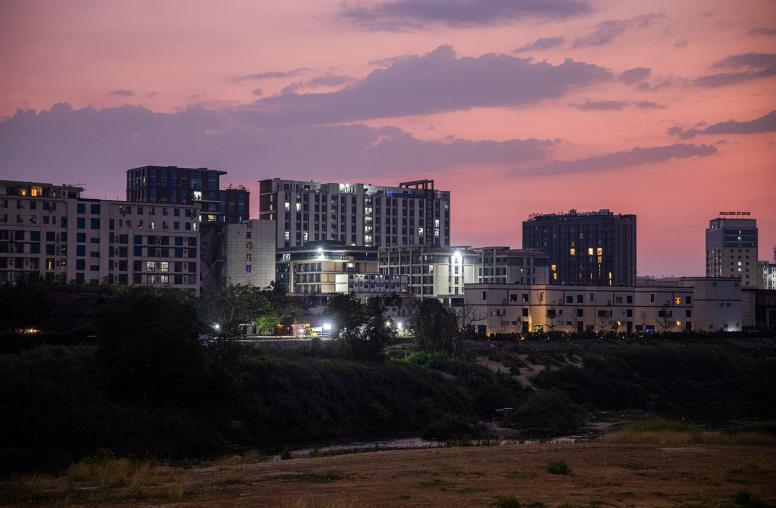A Global Democratic Resurgence is the Best Path Toward Peace
Civil-society leaders from four democracies affected by diverse and challenging conflicts examine the prospects for democracy and peace in their countries.
The longstanding global decline in democratic governance has now reached its 15th consecutive year, with the number of liberal democracies falling from 41 to just 32 in the last decade alone. Consequently, authoritarian tendencies have crept into the spaces once held by democratic institutions, with increased government repression and exclusion fueling further instability and conflict.

However, democracies remain more internally peaceful than any other form of government — a fact often attributed to their commitment to resolving grievances, disputes and inequities through inclusive and transparent institutions and mechanisms. And in a time of global upheavals, it’s this unique ability that makes reversing the decline in democracy the best path toward reducing fragility and mitigating the risk of violent conflict.
Generating a global democratic resurgence will require a concerted effort among democratic countries. President Biden hopes that the Summit for Democracy serves as a “rallying point” for this kind of cooperation, said Uzra Zeya, the undersecretary for civilian security, democracy, and human rights at the State Department.
Speaking at a USIP event in support of the Summit for Democracy, Zeya noted that the summit encourages concrete commitments to support democratic renewal and stressed the vital role that a free and open civic space plays in empowering democratic progress.
Civil-society leaders joining Zeya in the discussion all hailed from countries where democratic systems and values are currently under threat, and each gave their take on what they hoped to see come out of the summit:
Drivers of Democratic Decline
There are numerous factors driving this regression. But in most cases, the general trends indicate that a democracy starts to decline when the pressures facing it, both internally and externally, exceed weakened democratic institutions’ ability to manage them.
In many places, corruption and the failure to provide basic security and stability have hollowed out people’s faith in the democratic process, leading to low levels of confidence in democratic governance around the world. And the strain caused by borderless crises — such as record high displacement, the COVID-19 pandemic, a global economic downturn and climate change — is beyond the limits of any individual government to address.
To get a better sense of just what is underpinning this democratic backsliding, panelists explained the factors they believe are responsible in their own country:
Oleksandra Matviychuk, chair of Ukraine’s Center for Civil Liberties, discusses her country’s struggle to forge democratic institutions in the face of Russian aggression.
Idayat Hassan, the director of Nigeria’s Centre for Democracy and Development, on how Nigeria’s inability to provide security and inclusive decision-making undermines citizens’ trust in democratic governance.
Glenda Gloria, the executive editor of Rappler (a Philippine news website), on the culture of impunity that surrounds President Duterte’s government and the weakening of watchdog institutions, such as the media.
Farhad Alaaldin, chair of the Iraq Advisory Council, on the challenges that Iraq’s wars, U.S.-Iran conflict and sectarian fissures pose to democratic growth.
The Role Democracies Play in Securing Global Peace
Global peace is never the responsibility of one nation — and neither is the fight for democratic renewal. Democratic countries will need to “stand up and protect one another’s’ rights [and] come to the aid of a fellow democracy when they are under threat,” said Lise Grande, president and CEO of USIP.
But what is the most effective way for the United States and the international community of democracies to go about this? The Summit for Democracy offers three pillars: defending against authoritarianism; addressing and fighting corruption; and advancing respect for human rights at home and abroad. These pillars provide a foundation, but each country and community will also require a locally informed strategy that addresses their unique circumstances and democratic needs.



